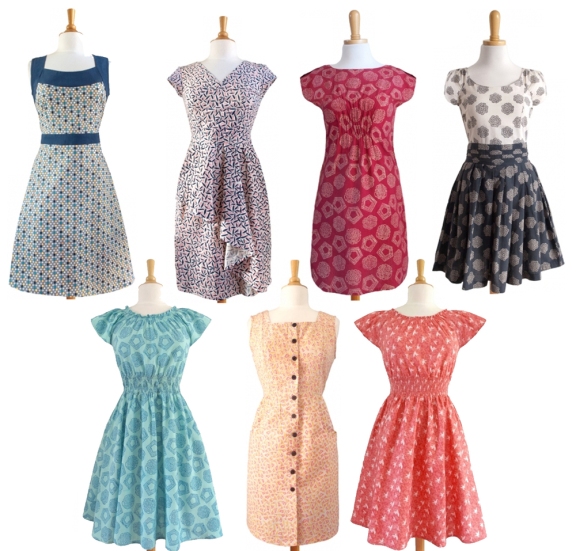Ethical Shopping
Dear readers, it’s been a long time. Much has happened (both tragic and wondrous) in my life in the months since my last post, but I’m very excited to bounce back on Lhakar Diaries with a fun and (I hope) useful post.
So here’s where my head’s at: I’ve just completed my graduate degree, I’m at the tail-end of my twenties, and I’m a week into a new teaching position at a wonderful college. But my closet still belongs to a college student. Composed mostly of vintage basement finds that I’ve lugged from Vancouver to Toronto to four different apartments in New York, and t-shirts that date back to the late 1990s, my wardrobe needs to join the 21st century. Yes, it’s time for this yak to step up her sartorial game. Frankly speaking, I also just need to dress somewhat conservatively on the days that I teach.
But after a few weeks of browsing the websites of those usual purveyors of ‘adult clothing’ (i.e. Zara, The Gap, Club Monaco etc.), I realized it wasn’t just an aesthetic change I wanted in my wardrobe. What I wanted was to spend my money on companies that were ethically transparent, ones that respected the dignity of their workers as well as the preciousness of the planet, and ones that didn’t charge me exorbitant boutique prices — because let’s face it, it’s often expensive to be an organic and ethical and free range kinda person.
In the past, with this excuse in tow, I’ve done my share of buying cheap throw-away fashion — clothes from big stores full of ‘of the moment’ styles meant to be discarded in a few months for the next flimsy polyester dress. But besides the unsavory materialism of ‘fast fashion’, the environmental impact of this trend in shopping is really concerning. As well, we all know the labor conditions of sweatshops. That ten dollar dress starts to look a lot more costly to the planet and human rights after you dig a little.
So, I’m now doubly committed to buying less and buying ethically. And as a Tibetan, this ethos fits right in with my commitment to human rights and progressive change. Because hey, the oppression of our people is interrelated with the thoughtlessness with which we treat this planet and each other.
Okay, so drumroll! I present to you the first ethical company I’ve patronized in my gradual ethical wardrobe make-over:
Started by a group of young women from Chicago, Mata Traders carries women’s clothing, jewelry and home accessories made in small workshops in Nepal and India. The women do everything from creating the gorgeous prints with hand-blocks, dying the fabric with eco-friendly dies, weaving the textiles made of fair trade cotton, and of course sewing the clothes. They are paid a fair living wage, provided health care, and day-care on site, and some even work on their craft from home. And as any good college student will tell you: uplifting the women is often the best way to uplift an entire community.
The clothes fit true-to-size, though if you’re between sizes, size up since they’re made of cotton and you can shrink them a little by washing them in warm water instead of cold as suggested. I’ve already purchased three dresses from Mata Traders and I’m salivating over the new items they just added this week! You can also purchase Mata Traders items from other online retailers such as Modcloth and Greenheartshop. These retailers often have their own sales and provide perks like free shipping.
Side note: when you snoop around the web for fair trade clothing, you find that there’s a whole virtual community invested in this approach. One style blogger I’ve enjoyed (and who regularly posts Mata Trader clothes) is October Rebel. You’ll find that unlike the typical style bloggers, October is not only committed to fair trade items, she’s eschews a gluttonous approach to clothes — often mixing and matching staple items. She has a great post called ‘How to Curate a Successful Wardrobe’ which shows how you can select items to go a lot further with less.
Okay, that’s all for now. I’ll post again on this and other fashionable matters — highlighting a different ethical company next time.
This is NYC Yak signing off. Ghale peh.



You might be interested in my project here: http://www.chameleonef.com
I have built this up completely around the concept similar to your own. No harmful chemicals. No animal testing. Not made and will never be made in countries that abuse their own civilian population’s freedoms and human rights.
Best regards,
Howard G. Fass (978)223.0260 direct howard@chemeleonef.com
http://www.chameleonef.com